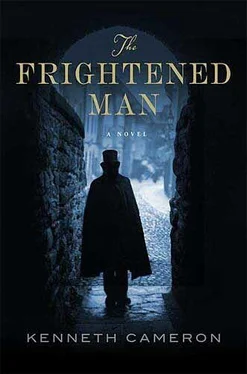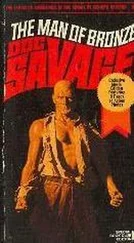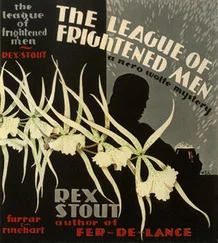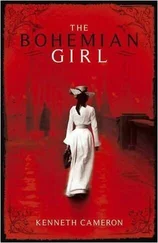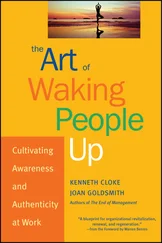Kenneth Cameron - The Frightened Man
Здесь есть возможность читать онлайн «Kenneth Cameron - The Frightened Man» весь текст электронной книги совершенно бесплатно (целиком полную версию без сокращений). В некоторых случаях можно слушать аудио, скачать через торрент в формате fb2 и присутствует краткое содержание. Год выпуска: 2009, Жанр: Детективная фантастика, на английском языке. Описание произведения, (предисловие) а так же отзывы посетителей доступны на портале библиотеки ЛибКат.
- Название:The Frightened Man
- Автор:
- Жанр:
- Год:2009
- ISBN:нет данных
- Рейтинг книги:5 / 5. Голосов: 1
-
Избранное:Добавить в избранное
- Отзывы:
-
Ваша оценка:
- 100
- 1
- 2
- 3
- 4
- 5
The Frightened Man: краткое содержание, описание и аннотация
Предлагаем к чтению аннотацию, описание, краткое содержание или предисловие (зависит от того, что написал сам автор книги «The Frightened Man»). Если вы не нашли необходимую информацию о книге — напишите в комментариях, мы постараемся отыскать её.
The Frightened Man — читать онлайн бесплатно полную книгу (весь текст) целиком
Ниже представлен текст книги, разбитый по страницам. Система сохранения места последней прочитанной страницы, позволяет с удобством читать онлайн бесплатно книгу «The Frightened Man», без необходимости каждый раз заново искать на чём Вы остановились. Поставьте закладку, и сможете в любой момент перейти на страницу, на которой закончили чтение.
Интервал:
Закладка:
Atkins appeared in his little doorway at the foot of the stairs. ‘You rang, sir?’
Denton tossed him the horrible tweed coat. ‘Get rid of that.’ He put his hat on the newel post. ‘I don’t want tea.’
‘Good, else I’d have had to send to the Lamb. Nothing in the house.’
Denton started up the stairs; his head seemed to pull him backwards.
Atkins shifted the heavy coat to bring it more into view. ‘When you say, “Get rid of it,” you mean put it away or get it out of the house?’
‘Throw it in the trash; give it to General Booth; wear it yourself.’
‘Wouldn’t be caught dead in it.’
He went up to his room. The unfinished novel made a pile of foolscap an inch high, written neatly enough but then scribbled over, crossed out, amended in trickles that fell off the end of the line and ran down the page and sometimes looped around to the other side of the sheet. He sighed and sat down to it. The truth was, as he admitted as he read over the last ten pages, the woman he’d created was a piece of cardboard. A fiction, a convenience. She was another of his attempts to capture his wife — to capture what she had done to him, to his life — in fiction. The scene he was working on had been meant as preparation for the downward spiral that would leave her dead on a frozen pasture in winter, raving and wandering in the snow. (The real Lily had taken poison.) And destroying her husband in the process.
Stella Minter, dead and eviscerated by first her murderer and then the surgeon, was, he saw, more real, even in death, than the woman in his novel. He’d tried to recreate his wife, and he hadn’t even created a corpse. He dropped the scene into the trash, then began to leaf back through the rest of the manuscript, pulling out pages, dropping them into oblivion. Not the way a writer makes money.
He heard Atkins breathing heavily as he came up the steep stairs.
‘Copper looking for you down below.’
‘I’m working.’
‘Copper wants you.’ Atkins produced a silver salver from behind his back. ‘Message.’
‘For God’s sake-’ Denton took the paper. ‘The plate wasn’t necessary, was it?’
‘Might have touched it with my dirty hands otherwise.’
It was from Munro. ‘ Can you meet me at a public house called the Haymow near the Minories at six o’clock? We can have a look at the scene you were interested in. PC Catesby will tell you the way, as it is difficult. Please reply by the constable. ’
‘I’ll go down.’
PC Catesby had a foolish young face and blushed easily. He drew a map on the back of Munro’s note as laboriously as if he were working out a problem in mathematics. In fact, Denton knew the streets he referred to as soon as he mentioned them, but there was no convincing the policeman. He went on pushing the thick pencil over the paper, printing names, making arrows, turning something easy into something tortuous.
‘I understand; it’s one street north and west of the Minories, right. The Haymow. Got it.’
‘Yes, sir, if you tell the driver the Minories and then direct him to-’ It was the third time he’d gone over it. Denton hadn’t told the man he planned to walk, afraid that he’d get the entire route mapped for him on the same small sheet of paper. He kept saying yes, right, thank you, and finally PC Catesby took himself off, turning back in the doorway, then at the gate, to make some further point. Then he actually came back and said to Denton, ‘The Haymow’s rather low, sir.’
‘Thank you.’
He wondered if he should have tipped PC Catesby, decided not. Giving policemen money had a bad reputation.
‘I’ve put out the dark-brown lounge suit,’ Atkins said when Denton came upstairs. ‘You want another of them headache powders?’
‘I’m all right.’
Atkins hesitated. ‘Your coat come back from Mrs Gosden’s. Also hat, gloves, stick. Also the derringer in the pocket.’ He raised his eyebrows — music-hall astonishment.
‘Somebody brought it?’
‘Commissionaire. Coat et cetera in a box. Carried the stick.’
In a box. Everything ends in a box.
‘Put the derringer in the hollow book.’
‘Already have.’
Denton started to ask if there had been any message with the coat, any reply to the apology he had sent Emma, but Atkins would of course have told him if there had been. In fact, the coat and hat were the message. They were the full stop at the end of a sentence — the compound sentence that had been his affair with Emma and was never to become a paragraph.
Chapter Five
Denton walked to his meeting with Munro — down to Holborn, along to the Holborn Viaduct, to Newgate Street, Cheapside, Cornhill, Leadenhall Street, Aldgate High Street — almost the whole width of the City. It was nearly evening, but the streets were banging with mechanical life — steam diggers clawing up the earth, steam cranes lifting bundles of wood and stone into the sky. London was a mythical beast that was tearing out its own innards and regrowing them in a new form — new streets, new buildings, new tunnels and railways. It was destroying — or hiding — what was sick or poor or weak or decayed and putting up the new, the vigorous, the aggressive. No wonder the directories couldn’t keep up with people like Mulcahy and Stella Minter: the city itself was flinging people from place to place.
He had spent his years in London walking as much as twenty miles a day, seldom less than eight or ten, Baedeker’s in his pocket. He had walked from his house to Richmond on one side, to the Lea on the other; he had crossed the Thames and walked down to Greenwich and up to Kew, and he had found this mechanical pulse of renewal everywhere. London for Denton, when he pushed Dickens out of his head, was a clatter of modernizing machines surrounded by a sea of mud where new suburbs pushed relentlessly outward, chewing up whole streets, whole towns, each one succeeded by a newer that made the earlier one instantly mature.
He was not afraid of places or people, although if he walked at night he went armed — hence the derringer in the forgotten topcoat. Now, he knew London tolerably well — well enough, at least, that he found, when he got to the Haymow, that he had stopped in it once for a drink when he was walking down to the Tower. The woman at the bar, the few other patrons, hadn’t been welcoming then — gentlemen didn’t go into public houses, weren’t welcome if they did, they had seemed to say. In fact, he’d learned a lesson from that visit to the Haymow. Gentlemen weren’t welcome, but Bohemians were; if he had worn a wider-brimmed American hat (a ‘cowboy hat’, Hench-Rose had once called it, although it in fact had a fairly narrow brim compared with some he’d seen) and no necktie, like the Bohemians at the Café Royal, he’d have been tolerated.
The Haymow was one of the old pubs, small and simple, with a bar that ran almost the length of the far wall but no divisions into saloon bar or public bar or private rooms or any of the other embellishments of the great public houses that had bloomed over the last quarter-century. It was cream-coloured inside, or had been before a layer of smoke had been laid over the paint, then layers of what seemed to be amber shellac over that, so that the walls were shiny where the lights caught them and glazed as brown as a Dutch painting. PC Catesby had said it was low, but Denton saw nothing very low except a few working-men, hats on, smoke in a cloud around them. Munro was sitting on a faded brown banquette against the wall, far around to the right from the door.
‘You found it,’ he said when Denton sat down.
‘PC Catesby gave meticulous directions.’ Catesby, he figured, had been trying to do a good job; no need to speak ill of him.
Читать дальшеИнтервал:
Закладка:
Похожие книги на «The Frightened Man»
Представляем Вашему вниманию похожие книги на «The Frightened Man» списком для выбора. Мы отобрали схожую по названию и смыслу литературу в надежде предоставить читателям больше вариантов отыскать новые, интересные, ещё непрочитанные произведения.
Обсуждение, отзывы о книге «The Frightened Man» и просто собственные мнения читателей. Оставьте ваши комментарии, напишите, что Вы думаете о произведении, его смысле или главных героях. Укажите что конкретно понравилось, а что нет, и почему Вы так считаете.
